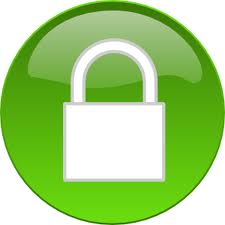
Rndballref
20 Years Experience
Chicago, IL
Male, 60
For twenty years I officiated high school, AAU and park district basketball games, retiring recently. For a few officiating is the focus of their occupation, while for most working as an umpire or basketball referee is an avocation. I started ref'ing to earn beer money during college, but it became a great way to stay connected to the best sports game in the universe. As a spinoff, I wrote a sports-thriller novel loosely based on my referee experiences titled, Advantage Disadvantage
I think you are asking this question: A1 gets the ball from the opening tip in his backcourt and shoots the ball into B1's basket (his oppponent's basket). How is it scored?
If this is your question, the answer is count the basket for team B, and A gets the ball for a throw in in their backcourt.
Placing the ball on the floor repeatedly denies the other team the opportunity to grab the ball and run. Here's how it should be handled. After the second occurence, the ref should stop the game and issue a "delay of game warning" against the team, and ask the scorer to register a warning in the book.. If they do it again, the offending player should be charged with a technical foul.
I believe that is a made up rule. The only way to construe a violation would be to consider it unsportsmanlike, but that is a stretch. The way to handle it is if there is a dead ball after the team was counting approach the coach and ask if the coach considers counting in that way sporting. Maybe he will stop them, but as a ref I would not call a foul.
Like most things in life it is not difficult to be a referee. However, it is very hard to be a good referee. Here are some of the reasons: 1) You need to study the rule book - it takes a long time to really understand and internalize them, 2) once the rules are understood it takes a long time to decide which rules should not be enforced at which levels/situations, 3) since there is a learning curve, you have to make a big commitment to it before you can be well compensated, 4) even if you develop into a good referee, you have to be lucky enough to be "discovered" and/or mentored by people in a position to help and promote you, and finally you have to have a different occupation that allows you spend your time investing in ref'ing. Oh yeah, you also need thick skin.
Rap Promoter / Manager
 Do rappers ever stage beefs with each other as a PR stunt?
Do rappers ever stage beefs with each other as a PR stunt?
Hairstylist and Makeup Artist
 How much am I supposed to tip my hairstylist?
How much am I supposed to tip my hairstylist?
Social Network Security Manager
 How has Facebook remained mostly immune to hacks?
How has Facebook remained mostly immune to hacks?
The coach can argue mixup all he wants, but it shouldn't matter. Awarding an unearned free throw is correctible, but all points and fouls earned before the error is detected count. In this case, an extra free throw was not awarded - the referees simply misled the lane rebounders, and that is NOT correctible. So, argue til you are blue in the face, and call it lousy officiating, but the play and points by rule stand.
Let's suppose that a player takes two hands on top of the ball and pushes it to the ground - double dribble. You see this sometimes when a player falls and use the ball to break the fall. What if a player takes one hand and pushes the ball to the floor ? That is an interrupted dribble until the player picks it up, or can continue the dribble with one hand (like the Globetrotters). If instead, he picks up the ball, he has used up the dribble and must pass or shoot from there.
Other than technical fouls, there are no free throws awarded when a team with possession of the ball commits a foul.
If it is in the possession of the player committing the foul, then it is a player control foul (NO free throws). If a player's team has possession and a foul is committed by a player on that team without the ball it is a team control foul (and again, NO free throws).
A team or player control foul is never awarded free throws, and it makes no difference if the team is in bonus.
Also, you might be asking if a charge is the only player control foul possible? The answer is no. A player with the ball might push, trip, hold, etc a defensive player and an offensive player without the ball might set an illegal screen, push, hold, etc in addition to charging. All of this is relative to NFHS rules.
-OR-
 Login with Facebook
Login with Facebook (max 20 characters - letters, numbers, and underscores only. Note that your username is private, and you have the option to choose an alias when asking questions or hosting a Q&A.)
(A valid e-mail address is required. Your e-mail will not be shared with anyone.)
(min 5 characters)
By checking this box, you acknowledge that you have read and agree to Jobstr.com’s Terms and Privacy Policy.
-OR-
 Register with Facebook
Register with Facebook(Don't worry: you'll be able to choose an alias when asking questions or hosting a Q&A.)